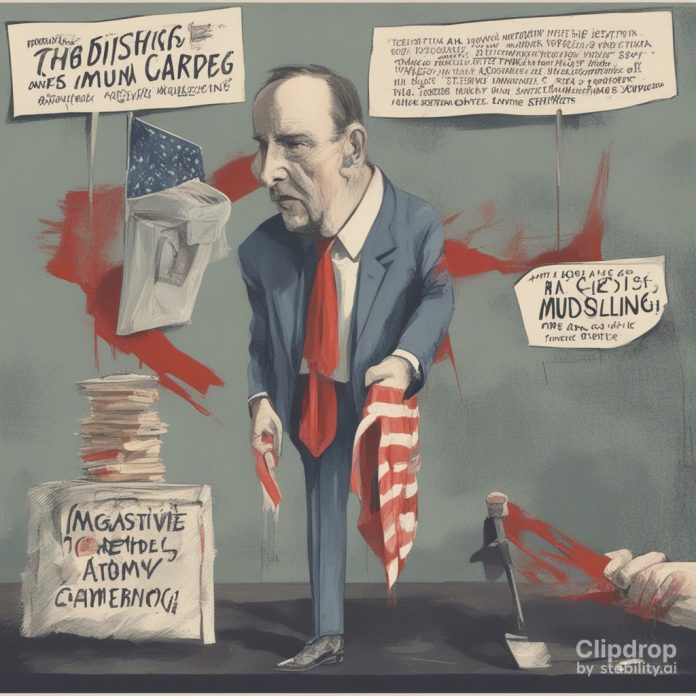Introduction
In the realm of politics, the line between ethical campaigning and mudslinging can often become blurred. The quest for power and influence can lead politicians down a treacherous path of negative campaigning, character assassination, and divisive rhetoric. However, it is essential to remember that the means by which one reaches the political pinnacle can have profound implications for the health of a democracy. In this blog, we will explore the ethics of political campaigning, focusing on the importance of avoiding negative campaigning and mudslinging.
The Power of Words
Words are a potent tool in politics. They can inspire, inform, and unite, but they can also divide and damage. Negative campaigning and mudslinging involve the strategic use of words to tarnish an opponent’s reputation, rather than focusing on the issues and policies that truly matter to the electorate. It is essential to recognize that such tactics can undermine the democratic process by discouraging thoughtful, informed discourse and polarizing the electorate.
The Impact on Civility
One of the most immediate consequences of negative campaigning and mudslinging is the erosion of civility in politics. When politicians engage in personal attacks rather than substantive debates, it sets a troubling example for the public. This behavior can lead to a toxic political climate where citizens become disillusioned and disengaged, further eroding the foundations of a healthy democracy.
Distraction from Important Issues
Another ethical concern with negative campaigning is that it often serves as a distraction from the critical issues facing society. Instead of focusing on substantive policy discussions, candidates spend their time and resources on attacking their opponents. This not only deprives voters of the information they need to make informed decisions but also perpetuates a shallow and superficial political discourse.
Damage to Reputation
Politicians who engage in negative campaigning risk damaging their own reputations as well. While such tactics may yield short-term gains, they can tarnish a candidate’s image in the long run. Voters tend to remember those who engage in mudslinging, and this can have lasting consequences for a politician’s career.
The Role of Media
The media plays a crucial role in shaping the ethical landscape of political campaigning. Journalists have a responsibility to hold politicians accountable for their words and actions. It is essential for the media to fact-check and provide a platform for substantive policy discussions, rather than amplifying sensationalistic attacks and empty rhetoric.
Positive Campaigning: A Better Approach
Positive campaigning offers a more ethical and constructive approach to politics. Instead of tearing down opponents, politicians can focus on their own qualifications, vision, and policy proposals. Positive campaigns can inspire hope and unity among voters, fostering a more inclusive and engaged electorate.
Transparency and Accountability
To promote ethical campaigning, transparency and accountability are paramount. Politicians should be held accountable for their campaign promises and statements. Fact-checking organizations, watchdog groups, and concerned citizens all have a role to play in holding politicians to a higher ethical standard.
Conclusion
The ethics of political campaigning extend beyond the pursuit of power and victory. In a democracy, the means by which politicians seek election can have far-reaching consequences for the health of the system itself. Negative campaigning and mudslinging may provide short-term advantages, but they come at a steep cost to civility, substantive discourse, and the overall health of the democratic process. It is incumbent upon politicians, the media, and citizens alike to prioritize ethical campaigning and uphold the values that underpin a strong and vibrant democracy. Only through such efforts can we hope to build a political landscape that truly serves the best interests of the people.

